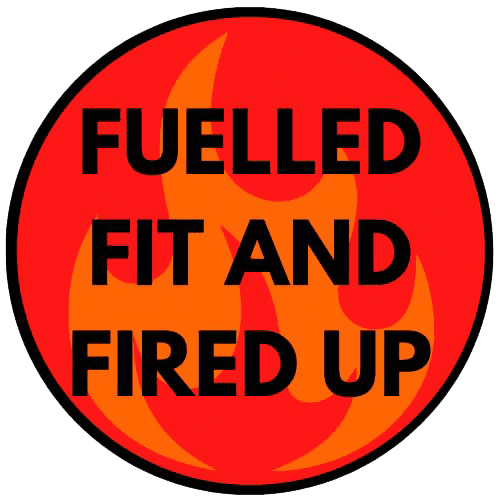
Who Are You?
Are you ready to embark on a journey of self-discovery and growth?
Last week I wrote about the transformative power of coaching, however, to maximise its and your potential take time to think about your purpose, behaviours, and values. Today, we're diving deep into the topic of self-awareness and why it is an essential ingredient for success, both personally and professionally. Self-awareness not only helps us understand ourselves better but also enables us to build stronger relationships, work collaboratively in teams, and thrive in every aspect of our lives.
Why is self-awareness so important, you may ask?
Well, let's start by acknowledging that self-awareness is the foundation of personal growth. It allows us to gain insight into our thoughts, emotions, and behaviours, enabling us to identify our strengths, weaknesses, values, and goals. When we truly understand ourselves, we can make conscious choices that align with our authentic selves and lead us towards a more fulfilling life.
So, what are the key areas of self-awareness?
Let's explore a few:
Emotional Self-Awareness: This involves recognising and understanding our own emotions, their triggers, and how they impact our thoughts and actions. By cultivating emotional self-awareness, we can manage our emotions effectively and respond to challenging situations with clarity and composure.
Strengths and Weaknesses: Identifying our unique strengths allows us to leverage them to our advantage and maximise our potential. Simultaneously, acknowledging our weaknesses helps us develop strategies to overcome them or seek support from others who possess complementary strengths.
Values and Beliefs: Understanding our core values and beliefs helps us make decisions aligned with our authentic selves. When we live in harmony with our values, we experience greater fulfilment and find it easier to navigate through life's challenges.
Communication Style: Being aware of our communication preferences, listening skills, and non-verbal cues empowers us to express ourselves effectively, build rapport with others, and foster harmonious relationships.
How can you improve your self-awareness?
Firstly, let's delve into the range of psychometric tools available to enhance our self-understanding and collaborative teamwork.
Myers-Briggs: This tool assesses personality preferences, providing insights into how we perceive the world, make decisions, and interact with others. It helps us understand our unique strengths and contributions to a team and appreciate the diverse perspectives of our colleagues.
DiSC: The DiSC assessment measures behavioural styles, highlighting our communication preferences, work motivations, and problem-solving approaches. By understanding our style and recognising the styles of our teammates, we can enhance collaboration and build more productive teams.
StrengthsFinder: This tool focuses on identifying and leveraging our top strengths, providing a framework for personal and professional development. By honing our strengths, we can excel in our chosen fields and contribute to team success.
Emotional Intelligence (EQ) Assessments: EQ assessments evaluate our emotional intelligence, including self-awareness, empathy, and social skills. By understanding our emotional strengths and areas for improvement, we can foster healthier relationships, resolve conflicts, and create a positive work environment.
However, while each of the above has its own merits for what you may be wanting to achieve, sometimes we just have to ask for feedback. But that is easier said than done.
Why don't we often seek feedback proactively?
There can be several reasons, such as fear of criticism, a desire to maintain a positive self-image, or simply not realising the value feedback can bring to our development. However, embracing feedback is crucial for our growth, both professionally and personally. Constructive feedback provides us with valuable insights, identifies blind spots, and helps us recognise areas for improvement.
If you are struggling to seek out or receive feedback here are some suggestions on how to actively seek constructive observations and suggestions:
Create a Culture of Feedback: Encourage an environment where feedback is valued and appreciated. Promote open communication channels, both within your team and with your superiors. By fostering a culture that embraces feedback, you create opportunities for growth and improvement.
Seek Feedback from Diverse Sources: Look beyond your immediate circle and actively seek feedback from a variety of sources. This can include colleagues, mentors, supervisors, and even friends and family who have a good understanding of your professional journey. Gathering diverse perspectives will provide a well-rounded view of your strengths and areas for development.
Be Specific in Your Request: When seeking feedback, be clear about what aspect or situation you would like feedback on. For example, if you recently completed a project, ask for feedback specifically related to your performance in that project. This specificity allows the person providing feedback to offer more targeted and actionable insights.
Embrace a Growth Mindset: Approach feedback with a growth mindset, viewing it as an opportunity for learning and improvement. Remember that feedback is not a personal attack but rather a valuable resource for self-awareness and growth.
Act on Feedback: Actively work on incorporating feedback into your personal and professional development. Identify actionable steps you can take to address the feedback and make positive changes.
By actively seeking feedback, we open ourselves up to new perspectives, accelerate our growth, and become more self-aware individuals. Embrace the power of feedback and watch how it transforms your personal and professional journey.
Remember, self-awareness is a lifelong journey, and each step you take towards understanding yourself better will have a profound impact on your personal growth and professional success. Embrace the process, be kind to yourself, and celebrate the progress you make along the way.
Wishing you a brilliant week filled with self-discovery, collaboration, and growth!
Dave Rogers, Chief Business Explorer, Fuelled Fit and Fired Up
At Fuelled Fit and Fired Up, we have a childlike curiosity about people and their businesses and use it to explore their challenges and discover their future business success stories. Think of it as unleashing your power.
Contact us at info@fuelledfitandfiredup.com to find out more.
And don’t forget to subscribe to our YouTube channel @thebusinessexplorers.



